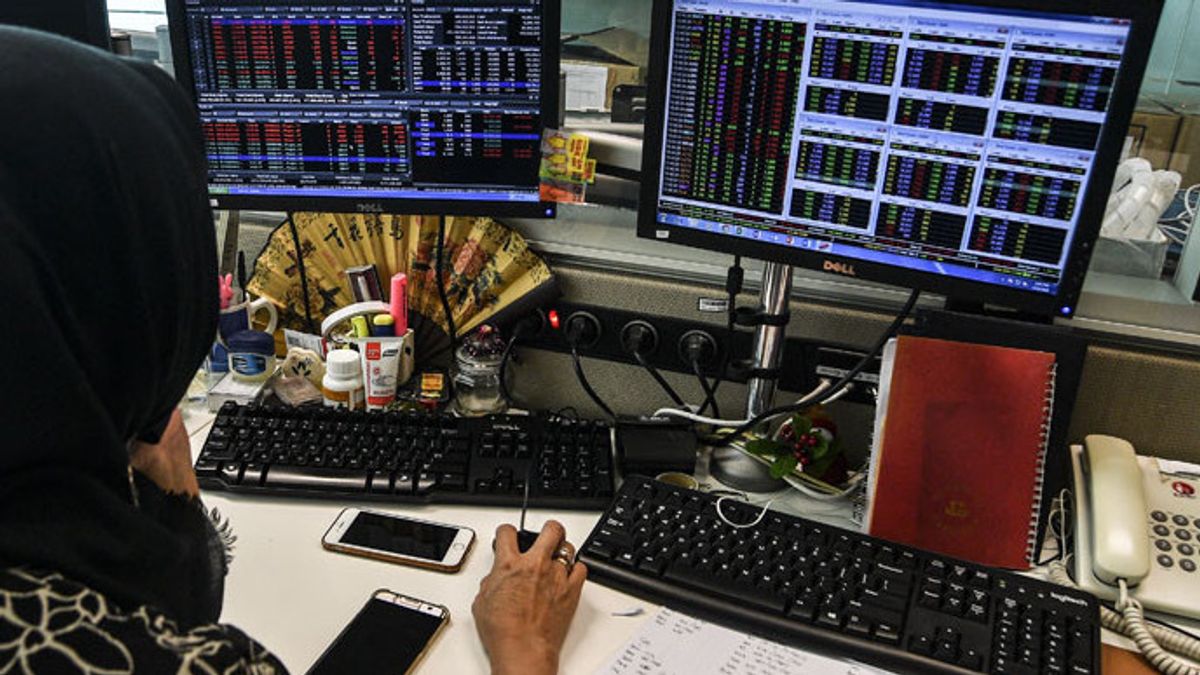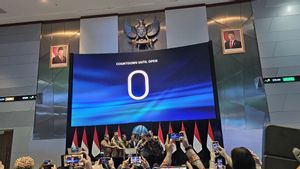JAKARTA - In the midst of a global situation that is still filled with unfavorable sentiments, the domestic financial market is being filled with a positive atmosphere in compiling the Composite Stock Price Index (JCI) which shows a positive trend and the rupiah is able to survive amidst external pressures.
At the close of transactions last Friday, February 18, the JCI closed up 0.84 percent to 6,892.818, which was the all time high (ATH).
"Investor confidence in the Indonesian financial market has improved at the beginning of this year. It can be seen from the first 50-day period of 2022, the JCI has recorded growth of 4.88 percent. This is a good start and we project it will continue given a number of positive achievements from domestic will continue to emerge. This positive achievement will encourage foreign investors' confidence in the national financial market. We project the JCI at the end of 2022 to continue to rise to the level of 7,300," said Budi Hikmat, Chief Economist of Bahana TCW, in a statement, Thursday, February 24.
There are at least two main things that encourage the strengthening of the JCI's performance going forward, namely, firstly, fundamentally, economic improvement after the COVID-19 pandemic continues. This fundamental improvement is the result of the National Economic Recovery (PEN) stimulus, various tax incentives, as well as accommodative policies by BI that have been running since the beginning of the pandemic.
The strong domestic economic recovery is reflected in the return of people's purchasing power. As of December 2021, money supply growth in a narrow sense (M1) grew 22.98 percent on an annual basis. The ongoing recovery is also supported by an improving trade balance.
Bank Indonesia (BI) said that the current account balance managed to print a surplus in 2021 of US$3.3 billion or equivalent to Rp47 trillion. This is the first surplus after recording consecutive deficits for the last nine years.
The increase in commodity prices since 2021 is predicted to have an impact on the performance of issuers which will push up earnings levels. On average this year there will be an increase in earnings of 17.19 percent which will push the JCI to the level of 7,300 or grow 11 percent from the end of 2021.
Second, the confidence of foreign investors has begun to be maintained which has brought foreign inflows to the national financial market since the fourth quarter of 2021.
Fundamental improvement is perceived positively by foreign investors even though the position of foreign inflows is not as good as during the commodity boom. However, this momentum can be interpreted as a starting point for the return of foreign investor confidence to the Indonesian stock market.
Since early 2022, foreign net inflows to the Indonesian stock market have reached Rp 20.3 trillion (year to date/ytd). This shows solid support or trust from foreign investors and can be a good indicator for the JCI's performance going forward.
Bahana TCW also believes that the JCI will only be affected minimally by negative sentiments from external sources, such as the Fed's plan to increase its interest rates five times this year, tensions between Russia and Ukraine, and the global market which shows a weakening trend.
"Foreign investors see this year's economy and the years to come as a year of harvesting from what the government has done since 2014. Since 2014, the government has initiated various national strategic infrastructure projects on a massive scale and starting in 2019, the government has seriously improved regulations to support ease of investment in the country, one of which is through the omnibus law. And now the market sees that what the government has done since 2014 has started to show results," said Budi.
Currently, market players, especially foreigners, see that Indonesia is starting to appear to have a clear economic character. Indonesia as a manufacturing country has a policy of increasing the added value of a number of natural commodities and is not only oriented to selling raw materials, for example the production of nickel, steel and others.
"So, the entry of foreigners into the Indonesian stock market is more due to the level of confidence in the story of Indonesia's economic growth in the future. In other words, the confidence of foreign market players is growing again because they appreciate the direction of Indonesia's economic development," concluded Budi.
The English, Chinese, Japanese, Arabic, and French versions are automatically generated by the AI. So there may still be inaccuracies in translating, please always see Indonesian as our main language. (system supported by DigitalSiber.id)










